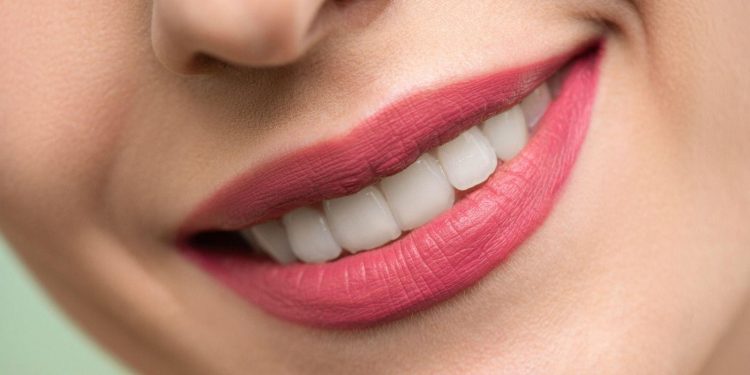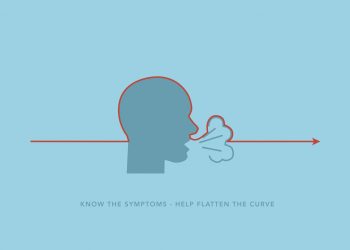Our mouth is the source of most bacterial and viral invasions in our system. We come in contact with several surfaces and eat items that may have bacteria residing on them. Our fingers become the source of the transfer of bacteria.
You can adopt healthy practices to minimize exposure and damage by bacteria that may cause tooth decay, cavities, and gum diseases. You can ensure the health of your mouth and teeth, and it requires a few changes in your routine. Your daily habits of dental and oral hygiene can help in that healthy smile of yours with no bad breath.
1. Brush Teeth Properly

We usually brush teeth right before our breakfast, but forget to brush them before going to sleep. The food particles of our last meal at night stay accumulated, and when you do not brush, they can lead to the formation of plaque and gum problems. If you brush twice a day and you are not doing it the right way, you welcome oral infections and diseases.
Consider a toothpaste that has the required amount of fluoride. Use a soft bristle brush that is neither too rough on your teeth, nor too smooth. Move it around your teeth and gums in circular motions. Make sure that you brush both on the outer and inner sides of your teeth. With a tongue scraper or a brush, do clean your tongue as well.
2. Use Dental Floss

Often food particles get stuck in between our teeth, and they may go unnoticed. So when you consume a meal, use dental floss to remove the food particles from teeth. Using floss helps to minimize the risk of tooth decay and cavities.
Move the floss between each of your teeth, and right when you reach the gums, move upwards towards the next teeth. In the process, make sure to be gentle to avoid the floss snapping in your gums. It helps you in the reduction of inflammation and plaque and keeps your gums healthy.
Adults and children who have problems with arthritis often find it difficult to brush and floss their teeth. They can use an electric toothbrush that helps in cleaning the teeth and tongue.
3. Use Mouthwash

For an added protection of your teeth and gums, consider using an antimicrobial or fluoride mouthwash. These help in the reduction of bacteria and protect you from gum diseases, gingivitis, and tooth decay.
Make sure that you consider the recommendations of your dentist because if children under 6 to 7 years use mouthwash, there’s a chance they might swallow it. Check the label and details on the product to know the recommended age and precautions for use.
4. Use Hygienic Equipment

Your equipment is exposed to bacterias, and these can invade your mouth too. When you keep your and the toothbrush of the family in the same container, it may lead to cross-contamination. It is necessary to keep your dental equipment separate and in a place where risks of bacteria or mold are minimal.
Make sure that you properly wash them after use, allow them to air dry for next use. Take special care of your toothbrush and change it every two to three months, and also if the bristles get worn out.
5. Changes in Diet

A few changes in your diet can help you to have healthier teeth and gums.
6. Drink Water
If you feel difficulty swallowing, eating, and speaking because of less saliva, it is a dry mouth. You should consume enough water to avoid a dry mouth.
Dry mouth leads to fungal infections, tooth decay, and cavities.
7. Consume Fresh and Crunchy Veggies

Fresh and crunchy vegetables are a source of fiber, and they are easy to chew and swallow. These vegetables (carrots, cabbage, broccoli, celery) do not get stuck to the surfaces on your teeth that might cause the growth of bacteria and yeast.
When you chew these vegetables, the blood flow to your mouth increases and your jaws, gums, and teeth get the required nutrients. Eventually, you have teeth and gums that look bright and healthy. If you want to improve your immune system, these are the nutrients to improve your immune system.
8. Avoid Sugary and Sticky Foods

Sugary items like processed juices and sticky candies and chocolates get accumulated in the teeth. They are converted into acids that further leads to erosion of the protective layer on teeth. Enamel erodes due to the acids in the mouth, and it exposes the healthy teeth to decay and cavities.
Try to consider fresh produce with no artificial sweeteners in your diet. Foods like burgers and pizzas get stuck to your teeth and can cause decay. Avoid snacking too much, and don’t forget to floss right after having sticky food.
Also, drinking colas, smoking, coffee, tea, and alcohol can affect the color and health of your teeth. Avoid these to maintain the health of your teeth.
9. Regular Dentist Visits

It is essential to visit your dentist at least twice a year for dental scaling. They can also check if you have any cavities or at risk of any dental problems. Considering this, the dentist can guide you for your dental hygiene according to your health and diet.
How often do you take care of your dental hygiene? Which steps do you take to protect your teeth and gums on any infections and diseases? Share with us in the comments below.
Keep visiting Health Archives for more health news and updates.
Follow us on Facebook, Instagram, and Twitter to stay up to date.







